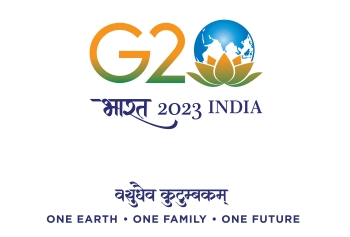
.png) Dr Suresh Mathew
Dr Suresh Mathew

Going by the achievements and appreciatory words of the world leaders, the G20 summit held in New Delhi from September 9 to 10 has proved the prowess of the country. The adoption of the New Delhi Declaration, especially as it was seen as a difficult proposition considering the diverging views on Ukraine war, was nothing less than pulling off a coup by the Indian negotiators. India’s presidency of the G20 was also marked by the novel way of holding 200 meetings in over 60 cities. The inclusion of the African Union as the 21st member of the organization and the decision to establish the India-Middle East-Europe Corridor are other major developments at the two-day mega event.
However, the pomp and show that marked the event and the speeches of Prime Minister Narendra Modi have another story to tell. One cannot ignore the demolitions of slums as part of the beautification of Delhi that put the poor and the marginalized people to untold troubles and travails. This led to displacement of a large number of the poor forcing them to lose their daily earnings. Equally disgraceful was the method used to hide the city’s slums behind large green curtains and similar cover-up operations. Foreign media went to the town with elaborate reportage on such ignominious steps by the government.
The Prime Minister used the occasion to preach about the significance of democracy, diversity, human-centric approach, larger role for women in leadership and decision-making, respect to all religions, and such values. Ironically, the ground reality in India is miles away from the ideals lectured by him. “As the Mother of Democracy, our belief in dialogue and democratic principles has been unwavering since time immemorial,” he said at the inauguration of the Summit.
Contrast it with the number of state governments in the country that fell like house of cards to give way to regimes run by the BJP; the numerous elected representatives who switched sides to enable the saffron party to come to power; and the list of parties that split like amoeba to help BJP form governments. Is it the ‘mother of democracy’ that Modi talked about? It is not without reason that India is described as ‘electoral autocracy’ by a reputed research group.
Modi spoke about dialogue as the bedrock of democracy. Even before the ink that reported his speech dried up, a five-day special session of the Parliament was announced, taking the opposition parties by surprise, without even specifying what for it was called.
He characterised India as land of diversity of faith, adding that every religion of the world has found respect here. Juxtapose this with the fate of the minority communities in the country; the innumerable attacks on them and their worshiping places; the lynching of minorities by cow vigilantes; and the fact that India stands somewhere at the bottom of the freedom of religion index.
The Prime Minister talked about women empowerment that will be a significant driver of change in the 21st century. It is still fresh in the memory Indians how women sports icons spent days and nights on the road in the heart of Delhi seeking justice for several of their ilk who had been allegedly molested by a prominent law-maker of Modi’s party. They are still waiting for the eluding justice. This much for the ruling party’s love and respect for women. Hence, unless the two sides of the G 20 story are written with equal prominence, it will remain incomplete for the generations to come.